
Woodbury Elementary School has “Anti-Racist Storybook” program that promotes transgender issues to students in kindergarten through second grade; district provides teachers with form that asks students if they want their gender identity hidden from parents
Incidents
On December 14, 2023, Woodbury Elementary School in Vermont posted a message on Facebook for parents of students in kindergarten through the second grade. The elementary school promoted an “Anti-Racist Storytime” for children in the post. The school explained:
K-2 parents and caregivers, please join us on the same night a little bit early at 4:30 p.m. when you can learn more about our Anti-Racist Storytime. Our equity consultants will be sharing the vision of this program with parents and caregivers and why it’s so important. We’ll have pizza, and childcare will be provided for the kids so you can bring the family, then stay for the concert!
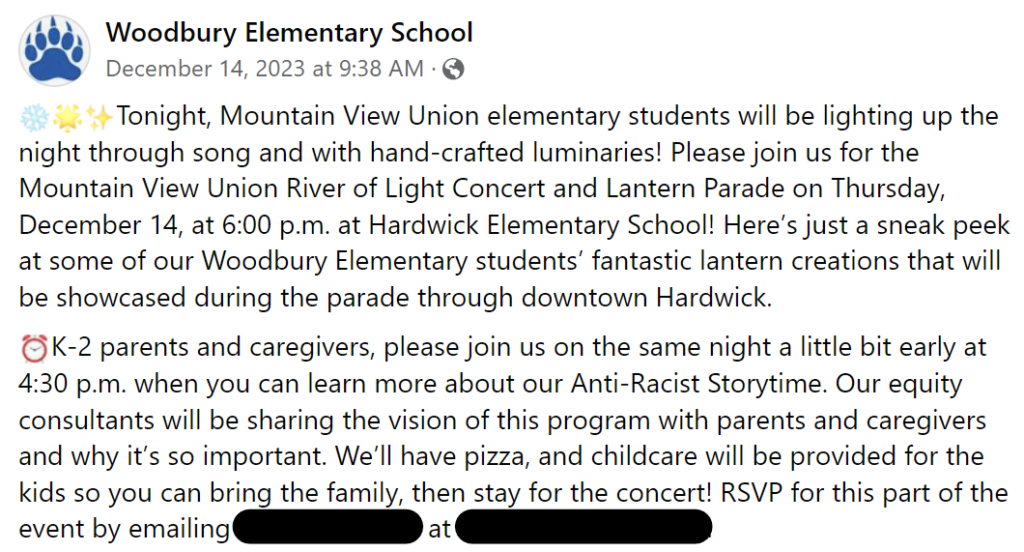
Parents Defending Education submitted a public records request to the school’s district, Orleans Southwest Supervisory Union, seeking any materials provided to parents at this meeting or any materials used by staff for the “Anti-Racist Storytime” program. The superintendent responded:
We did not present any materials. We simply modeled story time for the few parents who showed up. Story time is a K-2 program in our district that introduces concepts around inclusion centered on a book appropriate for that age group. You can find the entire curriculum sequence on our website at OSSU.org.

A document on the school district’s website describing the “Anti-Racist Storytime” program states that the program will focus on the race of students: “Students will explore why skin color is the color it is; students will practice talking about skin color; students will find similarities between colors/objects they know and their own skin color.” This document also explains that “students will explore gender identity.” Despite the superintendent stating the program focuses on “a book appropriate for that age group,” a book promoted for this program is When Aidan Became a Brother. This book features a young child transitioning to another gender in a positive manner.
The school district additionally has “Equity Resources” for classrooms. A resource for pre-kindergarten through second grade classrooms is a video titled “Woke Read Aloud” from a YouTube channel called “Woke Kindergarten.” The description of this YouTube channel states: “The illest early learning on YouTube. Liberation is the goal. Abolition is the journey. All Power to the Little People!”
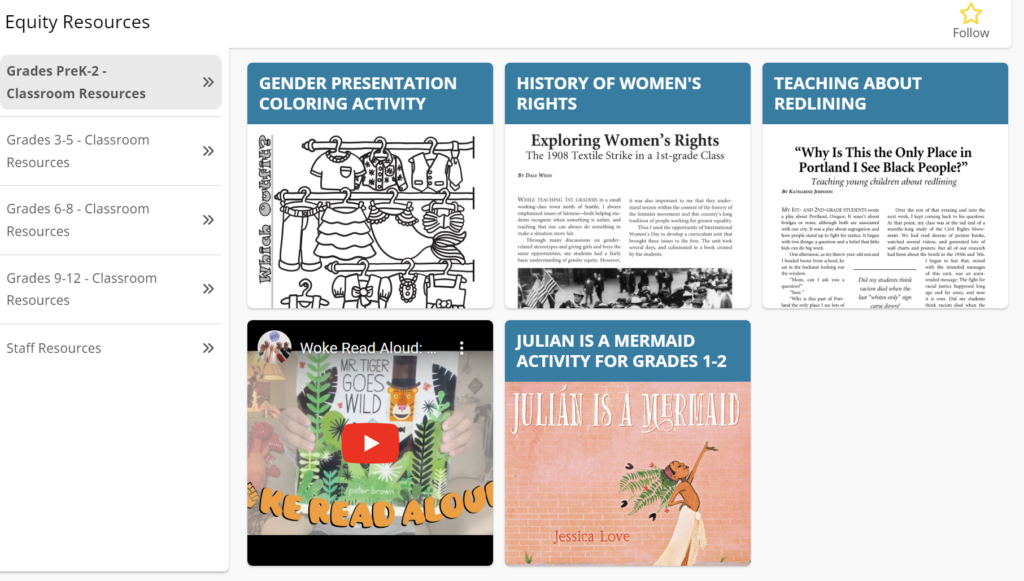

Resources for students in the third grade through fifth grade is a lesson from the organization GLSEN called “Identity Flowers” and a lesson from the organization Learning for Justice called “Art and Social Justice: What is a Portrait?” Another resource is a video titled “Why Gender Pronouns Matter.” The video has people identifying as “non-binary” stating that gender is on a spectrum and discussing “toxic masculinity.”
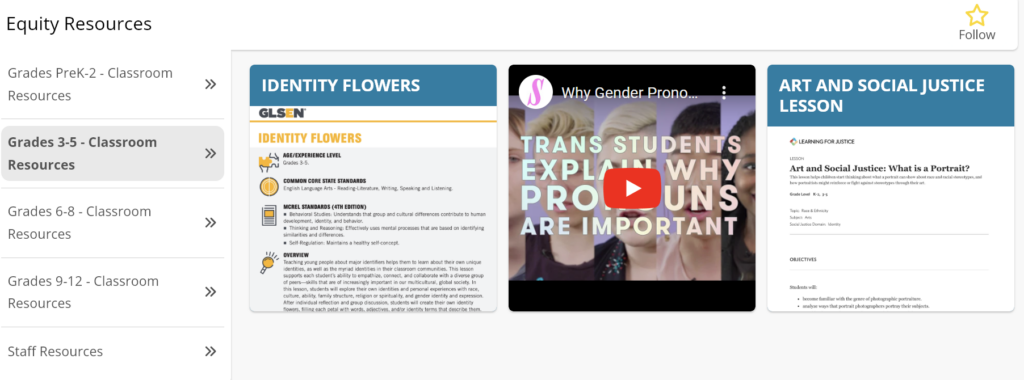
A resource provided for students in the sixth grade through twelfth grade is a document labeled as “Gender/Needs Get-to-Know-You Sheet.” This form asks students for their preferred pronouns and name. A question then appears to show this will be kept a secret from parents: “May I use these pronouns when I contact caregivers?”
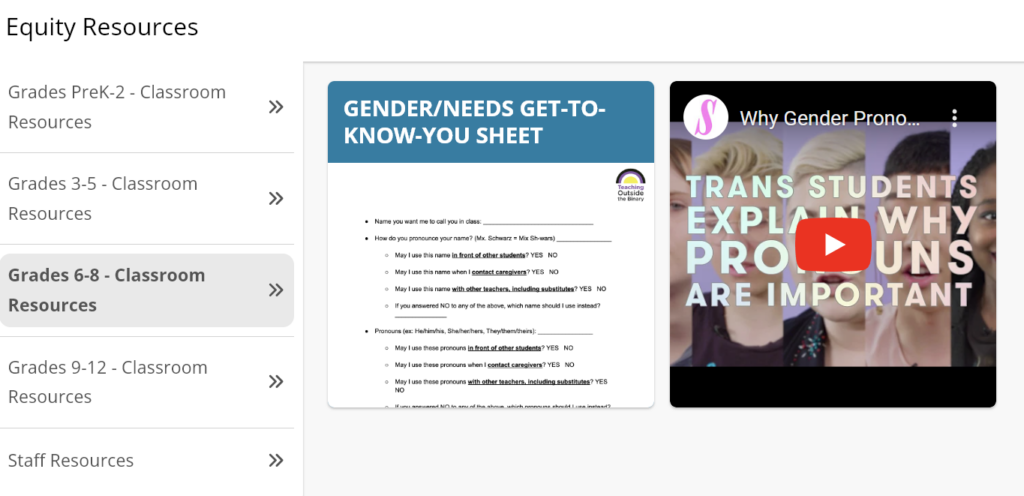
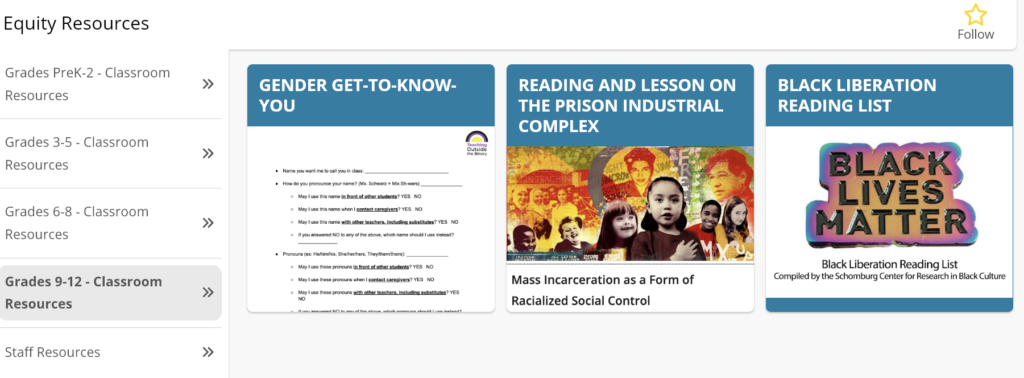
A resource designated for staff is a link to The New York Times‘ “1619 Project” podcast. The 1619 Project is a project by The New York Times which asserts that America was founded in 1619 to represent “when enslaved Africans first arrived in what would become the United States.”
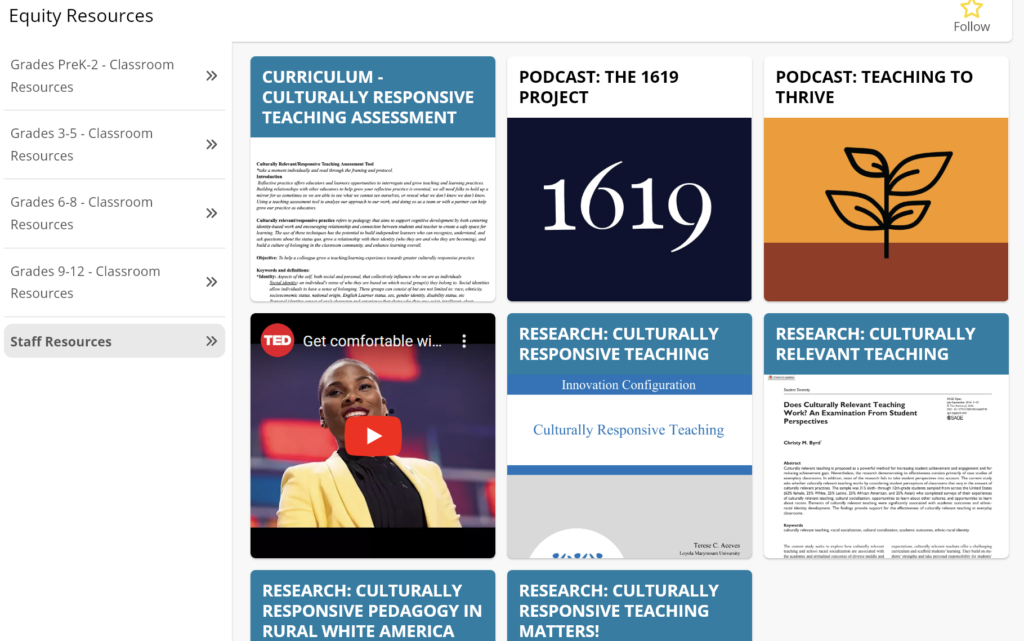
The organization GLSEN is known for promoting LGBTQ issues to young children. GLSEN states on its website that “while many LGBTQ+-inclusive school supports begin in middle or high school, it is critical for elementary schools to establish a foundation of respect and understanding for all people.” The organization has also appeared to show support for children taking “hormone replacement therapy” to transition to another gender:
Upon birth, we are typically categorized into one of two genders (boy or girl) depending on how our genitals are read. Throughout our lives, however, our many bodily characteristics work together to create a unique path of development, causing some of us to grow really tall, and others to remain short, or some of us to grow hair under our armpits and legs, while others remain bare. While this development often happens on its own during puberty, this change can also be administered through medicine, such as hormone replacement therapy. Since our society often conflates our bodies (or genitalia) with our gender identity, it is critical that we allow space for people to self-identify.
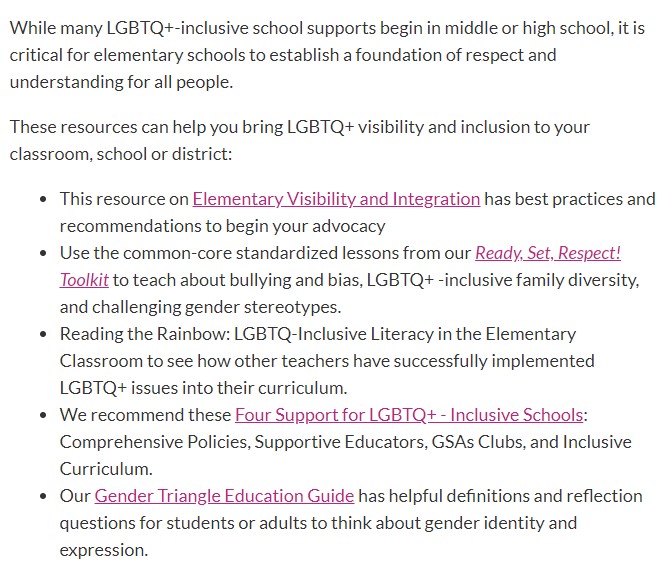

Learning for Justice is an organization that has pushed for its “Social Justice Standards” to be adopted in schools throughout the country. The document for these standards includes goals to achieve for students. One goal is that “students will develop language and historical and cultural knowledge that affirm and accurately describe their membership in multiple identity groups.” Another goal appears to outright state that the purpose of the “Social Justice Standards” is to turn students into political activists: “Students will make principled decisions about when and how to take a stand against bias and injustice in their everyday lives and will do so despite negative peer or group pressure.”
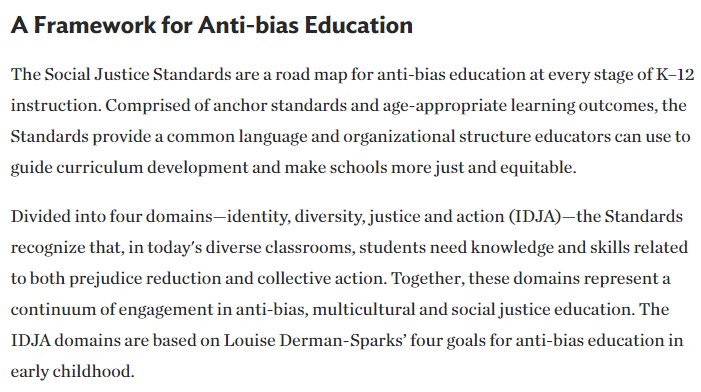
Stay Informed
